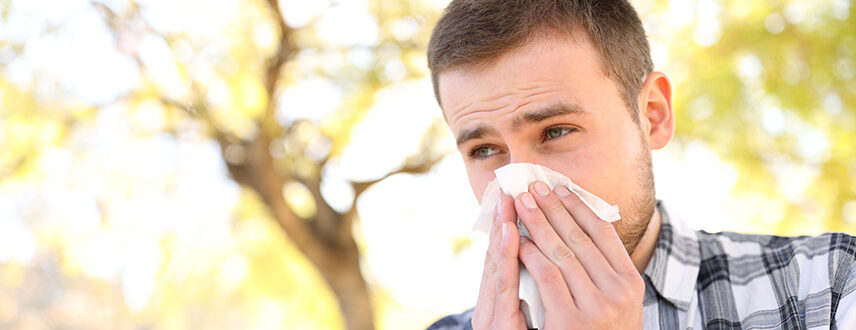
Summer is on the horizon, but for now, we are still in sniffly season of spring. For allergy sufferers, sneezing, runny noses, itchy eyes, and congestion can turn a beautiful spring day into a miserable experience. While over-the-counter antihistamines are a common go-to, many people are also turning to natural remedies like vitamin C to find relief.
What Causes Spring Allergies?
Spring allergies, also known as hay fever or seasonal allergic rhinitis, are primarily triggered by pollen from trees, grasses, and flowers. When pollen enters the body, the immune system can mistakenly identify it as a threat, releasing histamines and other chemicals that lead to allergy symptoms.
Common symptoms include:
- Sneezing
- Nasal congestion
- Itchy, watery eyes
- Fatigue
- Coughing and sore throat
The Role of Vitamin C in Allergy Relief
Vitamin C, also known as ascorbic acid, is a powerful antioxidant that plays many roles in maintaining health. It boosts the immune system, supports skin health, and aids in wound healing. But one of its lesser-known benefits is its natural antihistamine properties.
- Natural Antihistamine – Vitamin C can help reduce histamine levels in the body, potentially lessening the severity of allergy symptoms. Histamines are the chemicals released during allergic reactions that cause inflammation and discomfort. By acting as a natural antihistamine, vitamin C may help decrease sneezing, congestion, and other allergic responses.
- Anti-inflammatory Properties – Vitamin C’s anti-inflammatory effects can help calm the immune system’s overreaction to allergens. This can reduce swelling in nasal passages and improve airflow, making it easier to breathe.
- Immune Support – Allergies are essentially an overreaction of the immune system. Strengthening the immune system with vitamin C may help modulate this response, potentially reducing the frequency or severity of allergy attacks over time.
How to Incorporate Vitamin C for Allergy Relief
To take advantage of vitamin C’s allergy-fighting benefits, consider the following sources:
Dietary Sources
The best way to get vitamin C is through a healthy diet. Foods rich in vitamin C include:
- Oranges, grapefruits, and other citrus fruits
- Strawberries
- Kiwi
- Bell peppers
- Broccoli
- Kale
- Brussels sprouts
Supplements
Vitamin C supplements are widely available and can be an easy way to ensure you’re getting enough, especially during allergy season. A typical dose ranges from 500 mg to 2,000 mg per day. Always consult a healthcare provider before starting any new supplement, especially if you have underlying conditions or are taking medication.
Tips for Managing Spring Allergies Naturally
In addition to vitamin C, there are other steps you can take to keep spring allergies under control:
- Keep windows closed during high pollen times (usually early morning).
- Shower and change clothes after spending time outdoors.
- Use an air purifier with a HEPA filter.
- Rinse nasal passages with a saline solution to clear out allergens.
- Consider other natural supplements like quercetin or bromelain, which may also support allergy relief.
While spring brings blooming flowers and warmer weather, it can also trigger frustrating allergy symptoms. Incorporating vitamin C into your daily routine—through diet or supplements—may offer a natural way to reduce symptoms and support overall immune function. Combined with practical lifestyle adjustments, this simple nutrient could be your best ally in enjoying spring to its fullest.

Leave a Reply